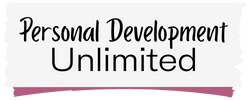Are you ready to take charge of your life and make the right decisions for yourself? Decision making is a crucial aspect of our lives, and our ability to make effective decisions can have a major impact on our personal growth and success.
Many people struggle with the decision-making process, often second-guessing themselves or avoiding making decisions altogether. However, with the right approach, decision making can be a powerful tool for personal empowerment.
Embracing Effective Decision Making
Effective decision making is a crucial skill that can impact every aspect of our lives. From minor choices to major life-altering decisions, the ability to make informed and rational decisions is essential to achieving success and fulfillment.
At its core, effective decision making involves a rational and analytical approach that considers all available options, weighs the risks and benefits, and ultimately chooses the best course of action. This approach relies on critical thinking and logical reasoning to arrive at a sound decision.
What is Rational Decision Making?
Rational decision making is a systematic approach to decision making that involves a step-by-step process to evaluate all possible options and choose the best one based on objective analysis. It considers all available information and evaluates it based on the criteria of relevance, importance, and reliability. Rational decision making aims to minimize biases and subjectivity in the decision-making process.
Here are some tips for improving your decision-making skills:
- Define the problem or goal.
- Identify all possible solutions.
- Weigh the pros and cons of each solution.
- Analyze the potential outcomes of each solution.
- Choose the solution with the highest potential for success.

The Importance of Effective Decision Making
Effective decision making can help individuals achieve their goals and aspirations, avoid mistakes and regrets, and live a more fulfilling life. It can lead to better relationships, improved financial stability, and increased career success. On the other hand, poor decision making can result in missed opportunities, negative consequences, and a sense of regret.
By embracing effective decision making, individuals can take control of their lives and unleash their power to achieve their dreams.
Mastering the Strategic Decision-Making Process
Strategic decision making is a critical skill for success in life. It involves analyzing situations, setting goals, and making informed choices that align with your long-term objectives. There are various decision-making models and frameworks that can assist in this process.
One such framework is the SWOT analysis, which stands for Strengths, Weaknesses, Opportunities, and Threats. This model is effective in assessing a situation and identifying internal and external factors that may impact your decision. Another relevant model is the decision tree analysis, which provides a visual representation of possible outcomes and associated risks and benefits.
Strategic decision making can be applied in various contexts, from business to personal life. For example, in business, strategic decisions may include investment opportunities, marketing strategies, and organizational structure. In personal life, strategic decisions may involve career choices, financial planning, and relationship decisions.

Examples of Strategic Decision Making in Action
One notable example of strategic decision making is the decision made by Steve Jobs to introduce the iPod in 2001. At the time, the music industry was struggling with rampant piracy and declining sales. Jobs recognized the need for a portable music device that was simple and intuitive to use. The iPod was a resounding success, and it transformed the music industry.
Another example is the decision made by the United States to invest in the development of the internet in the 1960s. This strategic decision has had a profound impact on society, transforming the way we communicate, work, and live.
Mastering the strategic decision-making process requires practice, patience, and persistence. It involves continuously challenging assumptions, seeking feedback, and learning from past decisions. When done effectively, strategic decision making can lead to personal and professional growth, fulfillment, and success.
Unleashing the Power of Critical Decision Making
Effective decision making involves more than just evaluating options and selecting the best one. It requires critical thinking skills to analyze information objectively and consider multiple perspectives. It also involves the ability to identify biases and assumptions that can cloud judgment.
Critical decision making is the process of making informed choices based on careful analysis and evaluation. It involves questioning assumptions, seeking diverse opinions, and rigorously testing ideas before making a final decision.
“Critical thinking is the intellectually disciplined process of actively and skillfully conceptualizing, applying, analyzing, synthesizing, and/or evaluating information gathered from, or generated by, observation, experience, reflection, reasoning, or communication, as a guide to belief and action.” – The Foundation for Critical Thinking
Developing critical thinking skills requires practice and effort. It involves being open-minded, identifying and challenging assumptions, and asking thoughtful questions. It also includes recognizing and avoiding common cognitive biases that can impact decision making, such as confirmation bias and the sunk cost fallacy.
By cultivating critical thinking skills, individuals can enhance their decision-making abilities and improve their outcomes. They can also develop a deeper understanding of complex issues and make more informed choices for the future.

Harnessing Data-Driven Decision Making
As the world becomes more data-driven, decision making has experienced a transformational shift. Data analysis and interpretation can inform decision making and enhance its effectiveness. By utilizing various techniques and tools for data-driven decision making, one can harness the power of data to make better decisions.
There are four main techniques for data-driven decision making:
| Technique | Description |
|---|---|
| Descriptive Analytics | Examining past data to understand what has happened. |
| Diagnostic Analytics | Identifying why something happened in the past. |
| Predictive Analytics | Using data to predict future outcomes and trends. |
| Prescriptive Analytics | Using data to make decisions about what actions to take. |
Data-driven decision making can provide numerous benefits. It can help individuals and organizations increase efficiency, reduce costs, and improve outcomes. By leveraging data, one can make informed decisions and mitigate the risks associated with intuition-based decision making.
However, it is important to note that data-driven decision making is not foolproof. It requires a certain level of expertise and resources to collect, analyze, and interpret data effectively. It also requires consideration of ethical concerns related to data privacy and bias.
Overall, by harnessing data-driven decision making techniques and recognizing their limitations, one can make more informed and effective decisions.
Overcoming Decision-Making Challenges
Decision making can be a challenging process, and there are several factors that can hinder it. Let’s explore some of these challenges and how to overcome them.
Uncertainty
One of the biggest challenges in decision making is uncertainty. When faced with a situation where the outcome is unclear, it’s easy to feel overwhelmed and unsure of what to do. To overcome this challenge, try to gather more information about the situation. Consult with experts or seek advice from those with experience in similar situations. By gathering more information, you can make a more informed decision.
Fear of Failure
The fear of failure can also be a significant obstacle in decision making. It’s natural to want to avoid failure, but it can also prevent you from making bold decisions that could lead to personal growth and fulfillment. To overcome this challenge, try reframing failure as an opportunity for growth. Instead of focusing on the negative aspects of failure, focus on what you can learn from it and how it can help you make better decisions in the future.
Cognitive Biases
Cognitive biases are another common challenge in decision making. These are mental shortcuts or patterns of thinking that can lead to errors in judgement. Common biases include confirmation bias, where we seek out information that confirms our existing beliefs, and the sunk cost fallacy, where we continue investing in a decision even when it no longer makes sense. To overcome cognitive biases, try to be aware of your own biases and actively seek out information that challenges your assumptions.
By overcoming these challenges, you can improve your decision-making abilities and achieve better outcomes. Remember that decision making is a skill that can be developed and refined over time.

Cultivating Intuition in Decision Making
Decision making is not just a rational process, but an intuitive one as well. The ability to listen to your inner voice and trust your instincts is a valuable asset that can lead to better decision-making outcomes.
Intuition can provide valuable insights that are not immediately apparent through analytical processes alone. It enables you to tap into your subconscious mind and access knowledge and experience you may not even be aware of consciously.
However, cultivating intuition requires practice and self-awareness. Here are a few techniques to help you develop your intuition:
- Pay attention to your body: Notice physical sensations, such as a gut feeling, when making decisions. Your body often reacts before your mind fully processes information.
- Practice meditation: Meditation can help clear your mind of distractions and allow you to access your intuition more easily.
- Keep a journal: Journaling can help you connect with your inner voice and identify patterns or themes in your decision making.
- Trust yourself: Have confidence in your ability to make good decisions and trust your instincts.
“Intuition is a very powerful thing, more powerful than intellect.” -Steve Jobs
Integrating Intuition into Decision Making
Intuition should not replace rational thinking in decision making, but rather be used in conjunction with it. By combining intuition and logic, you can make more informed decisions that take both your conscious and subconscious mind into account.
When faced with a decision, it is important to gather all available information and consider different perspectives. Then, take a moment to reflect and check in with your intuition. Notice any physical sensations or feelings that arise and use them to guide your decision making.
Intuition is a skill that can be honed with practice. By learning to trust your inner voice and integrate it into your decision-making process, you can unleash your full potential and make better decisions that lead to personal and professional growth.

Nurturing Self-Confidence in Decision Making
Self-confidence is a crucial element of effective decision making. Without it, we may struggle to trust ourselves and our choices, leading to indecision and inaction. However, building self-confidence is easier said than done. It requires a deep understanding of our strengths and weaknesses, as well as a willingness to take risks and face challenges.
So, how can we nurture self-confidence in decision making?
Identify Your Strengths
To cultivate self-confidence, it’s important to identify and celebrate your strengths. Make a list of your accomplishments and the skills that you excel at. Recognize the challenges you’ve overcome and the decisions that you’ve made that have had positive outcomes. By recognizing your strengths and achievements, you’ll gain a sense of mastery and feel more capable of making decisions.
Challenge Your Self-Doubt
Self-doubt is a common obstacle to self-confidence, especially when it comes to decision making. But it’s important to remember that everyone experiences self-doubt from time to time. Instead of giving in to your doubts, challenge them. Ask yourself why you’re feeling uncertain and whether your concerns are based on facts or assumptions. By questioning your self-doubt, you can gain a more objective perspective and make more rational decisions.
Take Calculated Risks
Self-confidence also involves taking calculated risks. This means stepping outside of your comfort zone and taking action, even when the outcome is uncertain. Start small by making decisions that are low-risk but still require you to take action. Over time, you can work your way up to bigger decisions that require more confidence and courage.
Practice Self-Compassion
Self-compassion is an important component of self-confidence. It involves treating yourself with kindness, understanding, and forgiveness, rather than criticizing yourself for your perceived flaws or mistakes. By practicing self-compassion, you’ll be more resilient in the face of adversity and be better able to bounce back from setbacks.
By prioritizing self-confidence in decision making, you’ll be able to trust yourself and your choices more fully. Remember, building self-confidence is a process that takes time and effort, but the rewards are well worth it.

Embracing Courageous Choices for a Fulfilling Life
Life is a complex journey full of decisions, some of which require more courage than others. Courageous choices are often the ones that lead to personal growth, fulfillment, and success. It takes courage to step outside of our comfort zones, take calculated risks, and pursue our dreams. By embracing courageous decision making, we can unlock our true potential and live a fulfilling life.
There are many examples of individuals who have made bold decisions and achieved great things as a result. Take the story of J.K. Rowling, who was a struggling single mother when she wrote the first Harry Potter book. Despite facing rejection from publishers, she persisted and eventually became one of the most successful authors of our time. Her courageous decision making led to a life of abundance and success.
Challenging the Status Quo
Courageous choices often involve challenging the status quo and going against conventional wisdom. To make these choices, we must be willing to think outside the box and question assumptions. It is easy to get stuck in a rut, doing the same things day in and day out. But to achieve great things, we must be willing to take risks and try new things.
One way to challenge the status quo is to look for opportunities to disrupt the norm. This could mean introducing new ideas, processes, or products that challenge the way things have always been done. By doing so, we can create new opportunities for ourselves and others.
Facing Fear and Uncertainty
Courageous decision making often involves facing fear and uncertainty. It is natural to be afraid of the unknown and to worry about the consequences of our decisions. But to live a fulfilling life, we must learn to embrace fear and uncertainty and use them as motivation to take action.
One way to overcome fear and uncertainty is to focus on our long-term goals and values. By keeping these in mind, we can stay focused on what is truly important and make decisions that align with our vision for the future. We must also learn to trust ourselves and our abilities, knowing that we have the skills and resources to handle whatever challenges come our way.
Building Resilience
Courageous decision making requires resilience, the ability to bounce back from setbacks and persevere in the face of adversity. We must learn to view failures and setbacks as opportunities for growth and learning, rather than as signs of defeat.
One way to build resilience is to develop a growth mindset, which is the belief that we can always learn and improve. By adopting a growth mindset, we can view challenges as opportunities to improve our skills and become better decision makers. We must also be willing to seek feedback from others, learning from their perspectives and using it to improve our decision-making abilities.
In conclusion, embracing courageous decision making is essential for living a fulfilling life. By challenging the status quo, facing fear and uncertainty, and building resilience, we can unlock our full potential and achieve great things. It takes courage to make bold decisions, but the rewards are often worth the risk. So let us embrace courageous decision making and live our lives to the fullest.

Cultivating Decision Making as a Lifelong Skill
Decision making is an essential life skill that affects every aspect of our existence. From minor choices like what to wear in the morning to major decisions like choosing a career or life partner, the ability to make sound decisions is crucial for personal growth and success. However, decision making is not a fixed trait that one is either born with or without, but rather a skill that can be developed and honed over time. Here are some practical tips to help you cultivate decision-making skills as a lifelong endeavor:
- Seek feedback: Solicit feedback from trusted individuals to gain different perspectives on your decision-making process. This can help you identify blind spots, biases, or areas for improvement.
- Learn from past decisions: Evaluate past decisions to identify what worked and what didn’t. Reflect on the decision-making process, the criteria used, and the outcomes. This can help you refine your decision-making abilities and avoid similar mistakes in the future.
- Embrace a growth mindset: Adopting a growth mindset means believing in your ability to learn and improve. It involves embracing challenges, persisting through obstacles, and seeking opportunities for growth. This mindset can boost your confidence in decision making and help you develop resilience in the face of failures or setbacks.
- Expand your knowledge base: Seek out diverse sources of information and perspectives to broaden your understanding of different situations. Reading books, attending lectures or workshops, or engaging in discussions with individuals from different backgrounds can enhance your decision-making abilities and expand your worldview.
- Practice decision making: Like any skill, decision making requires practice to improve. Seek out opportunities to make choices, even if they are small or inconsequential. This can help you build confidence, hone your analytical skills, and refine your decision-making process.
By following these tips, you can cultivate decision-making skills that will serve you well throughout your life. Remember that decision making is not a one-time event but rather a continual process of learning, growth, and improvement. Embrace the journey, and enjoy the rewards of becoming a proficient decision maker.
Frequently Asked Questions (FAQ)
Decision making is a complex process that requires careful consideration and thoughtful analysis. Here are some common questions related to decision making:
Q: How can I make a decision without regretting it later?
A: Making a decision without the fear of regret can be challenging. To increase the chances of making a decision that you won’t regret later, try to gather as much information as possible, weigh the pros and cons of each option, and consult with trusted individuals before making your final decision.
Q: How can I overcome my fear of making decisions?
A: Fear of making decisions is common, but it can be overcome. Try to understand what is causing your fear, challenge any negative beliefs you may have, and start by making small decisions that can help build your confidence. Remember: every decision is an opportunity to learn and grow.
Q: How can I avoid making impulsive decisions?
A: Impulsive decisions can often lead to regret. Before making a decision, take a step back and consider all your options, gather relevant information, and take time to reflect on your choices. If you’re feeling emotional or overwhelmed, it’s okay to take a break and come back to the decision later when you’re feeling more grounded.
Q: What is the role of intuition in decision making?
A: Intuition can be a valuable tool in decision making. It can provide insights that analytical processes alone may not reveal. To cultivate your intuition, try to listen to your inner voice, pay attention to your body’s physical responses, and practice trusting yourself and your instincts.
Q: How can I make decisions that are aligned with my values and goals?
A: To ensure that your decisions are aligned with your values and goals, take time to reflect on what is important to you and what you hope to achieve. Consider how each decision option aligns with your values and supports your long-term goals. Remember that it’s okay to make decisions that prioritize your personal growth and fulfillment.
Personal Development Unlimited is your go-to place to be You, Without Limits. We bring together personal development and self-improvement articles, books, courses and videos in one place. Find your self-growth opportunities easily.
Comments
0 comments



